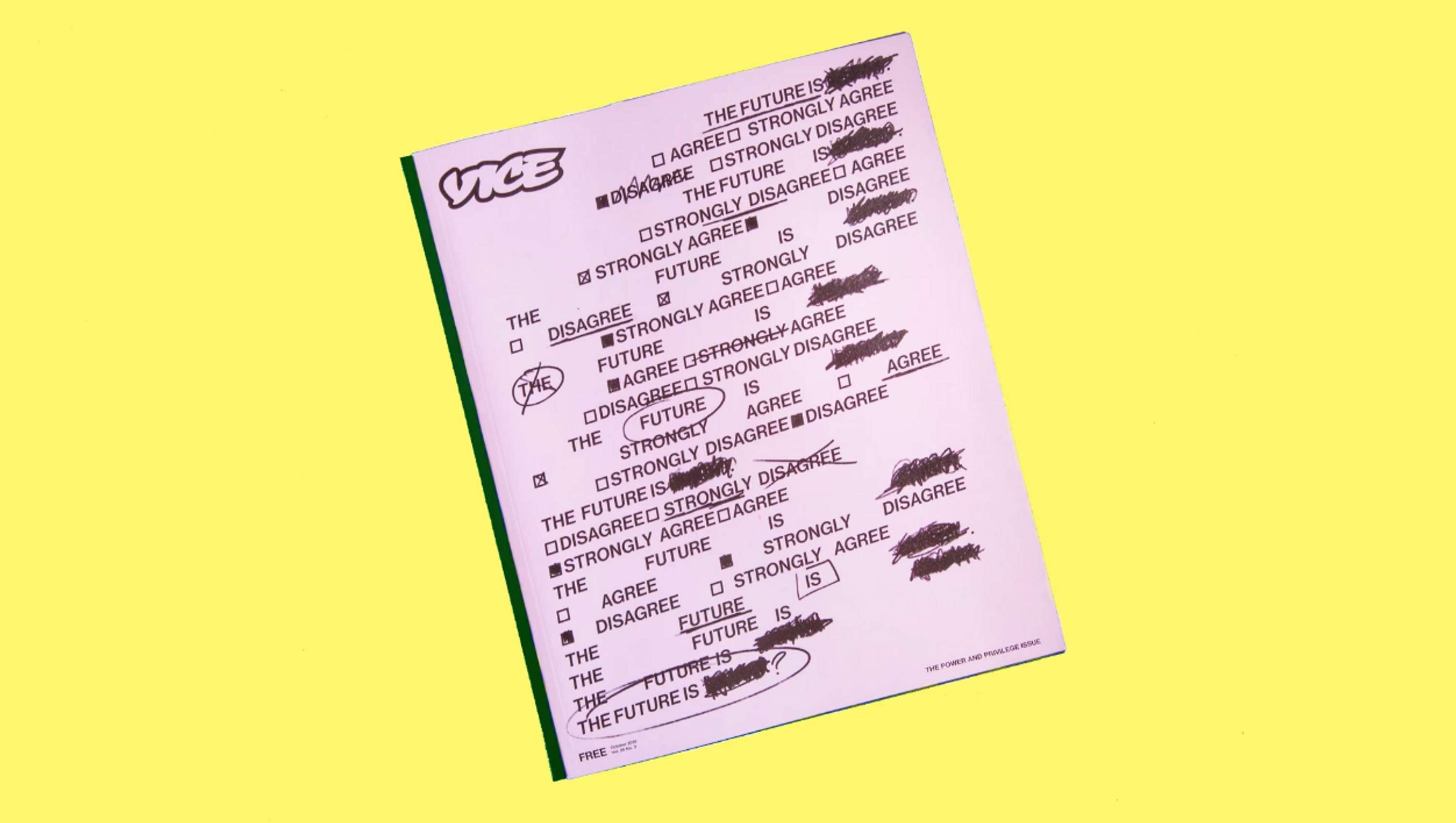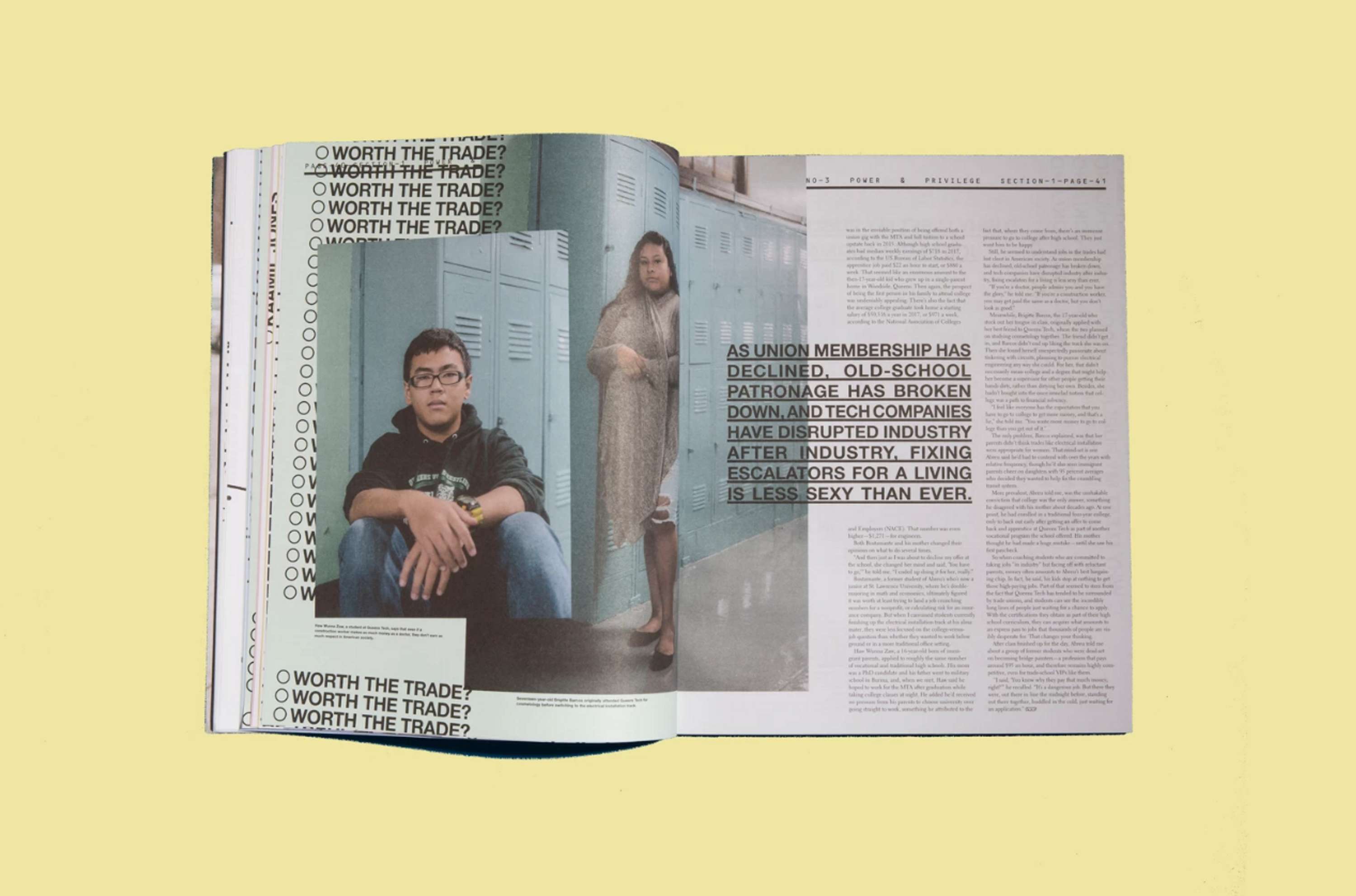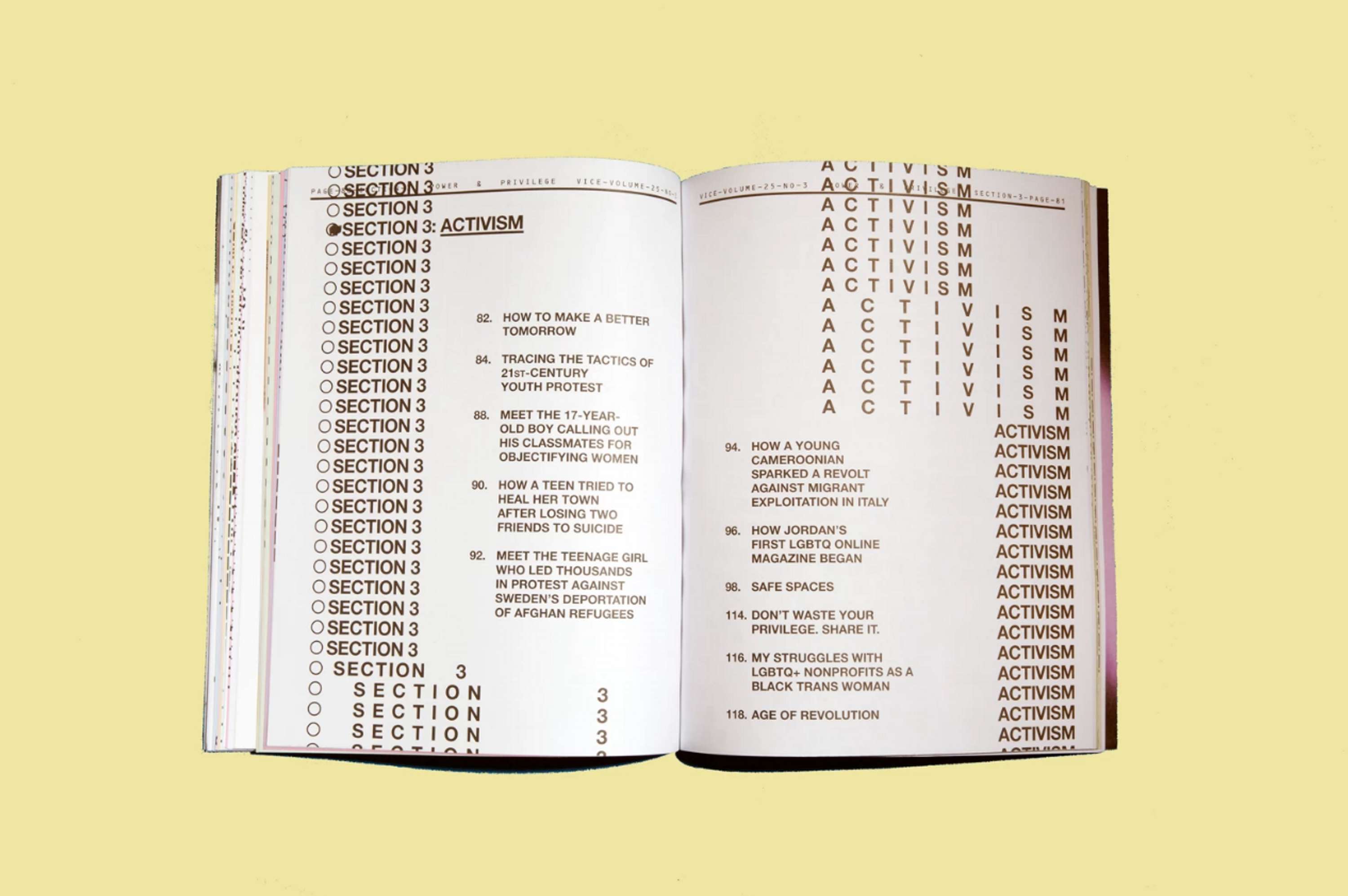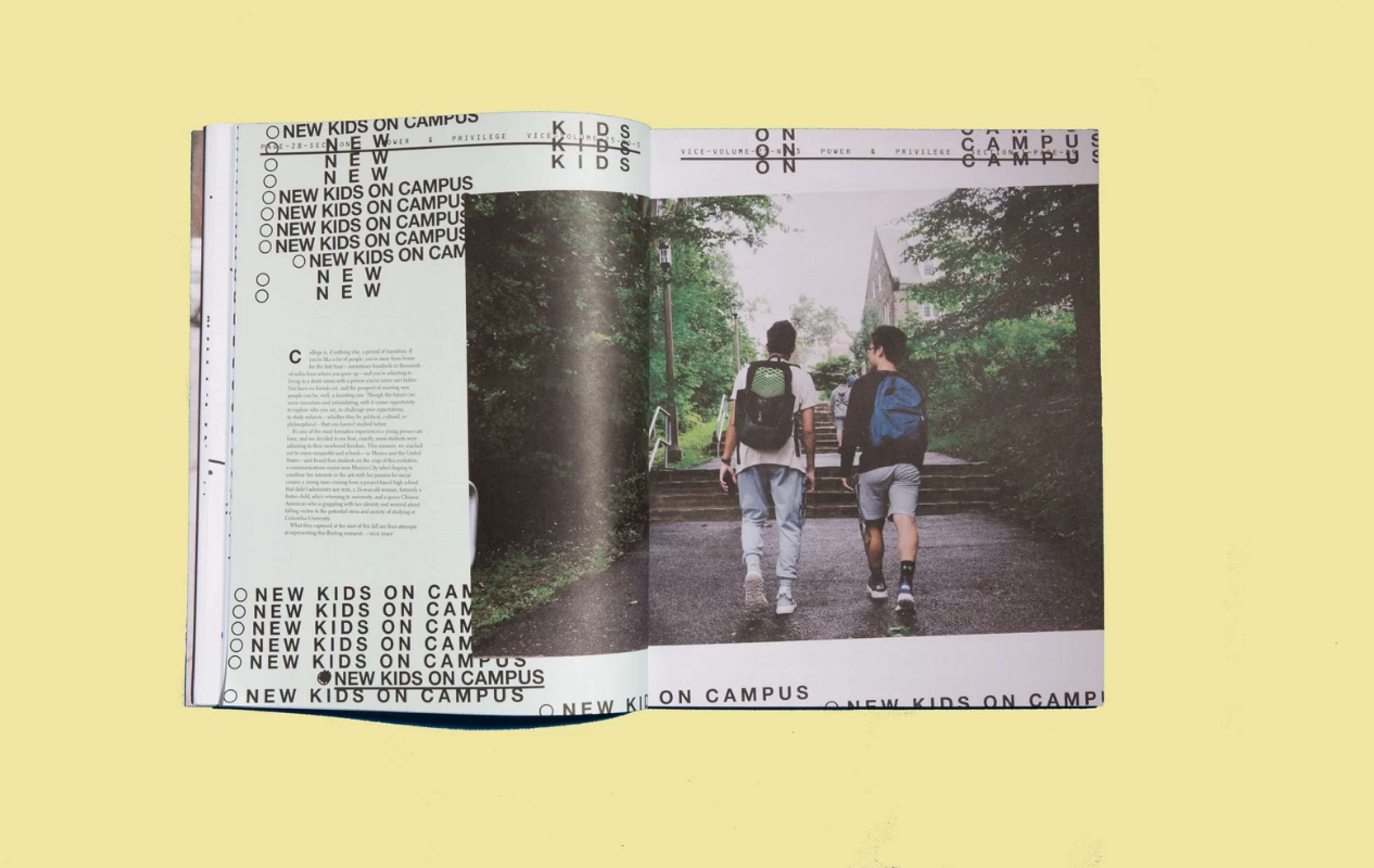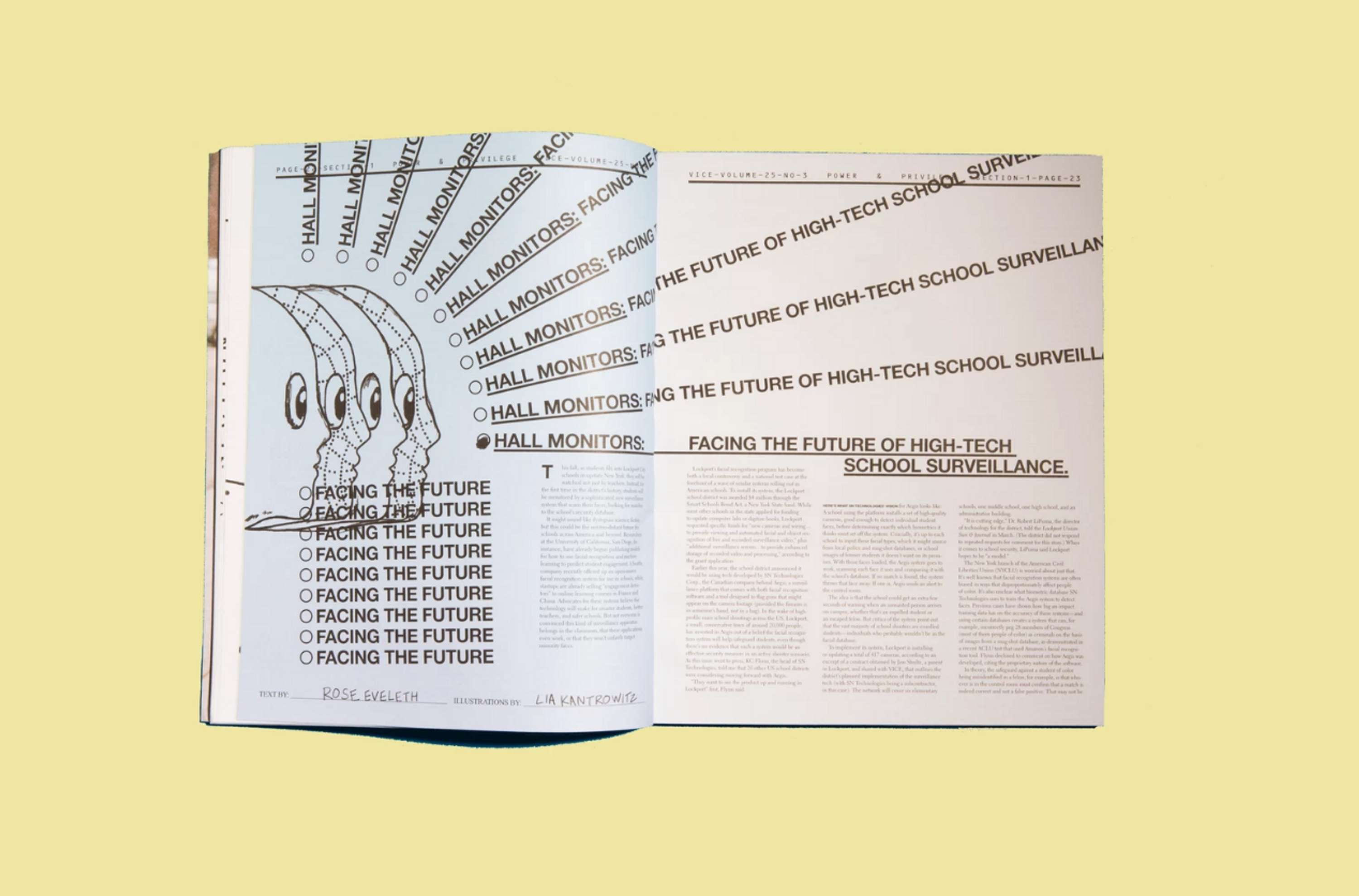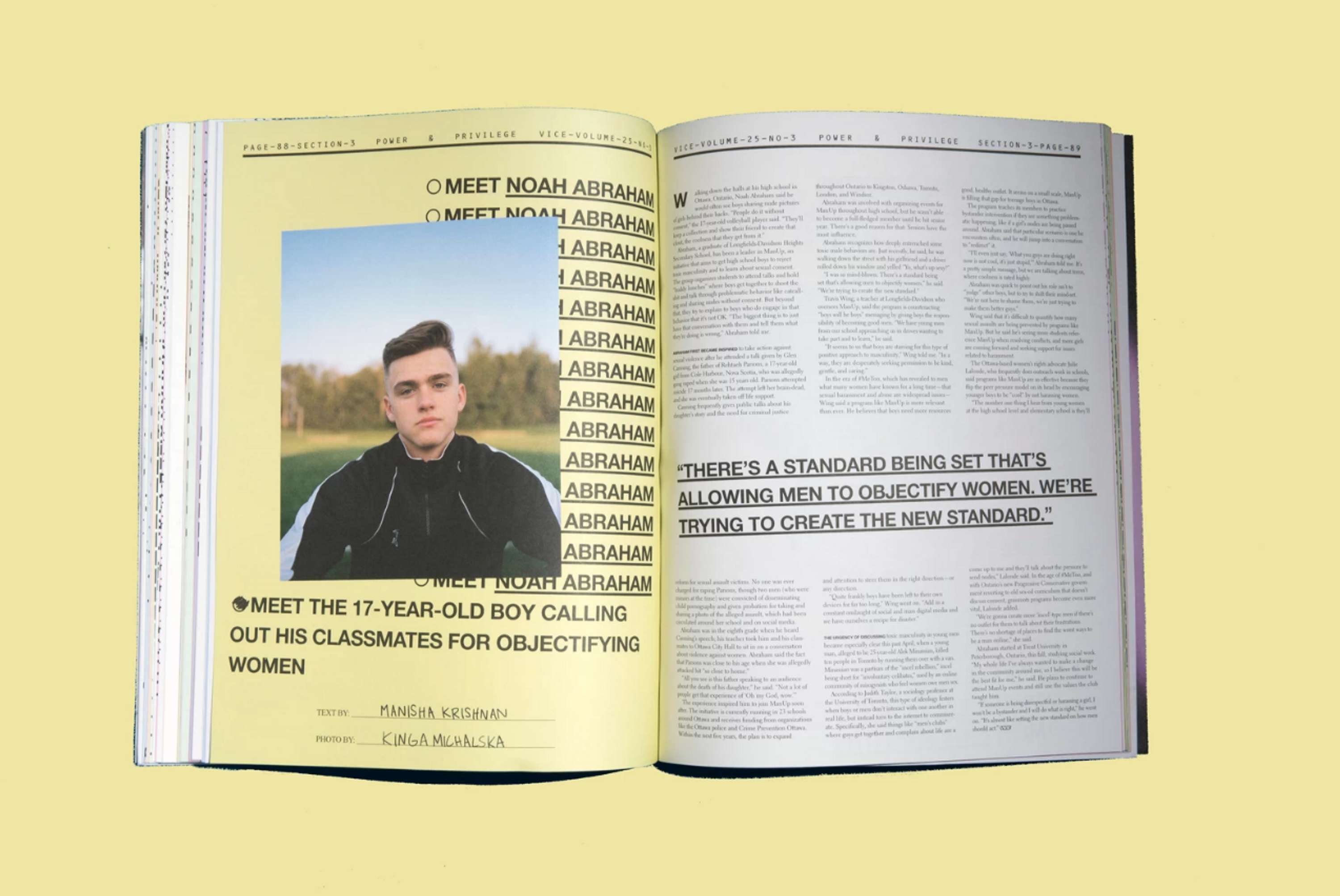THE POWER AND PRIVILEGE ISSUE, OCTOBER 2018
We’re pleased to release our third quarterly edition of the year: the Power and Privilege Issue. In putting this issue together we took a cue from the VICE Voices survey we conducted in the US and UK at the start of 2018. The survey asked thousands of young people what they think about the future—what issues are important and what’s at stake. There were three key findings we wanted to delve into: Millennials and Gen Z don’t feel that their education is preparing them for the future and are worried they won’t be able to get jobs and be financially secure, but they still believe in action and the power to make change happen. We homed in on these feelings and perspectives to help shape the content, format, and design of the issue. In print, the issue was broken down into three sections. In section one, we glimpse what the future of education may hold, from the use of facial recognition technology in schools to what universities are (or aren’t) doing to prepare students for the automation of the workforce, and we offer personal accounts from people deeply affected by the state of the education system today. Section two provides a diverse set of perspectives on the job market, the challenges facing workers today, and what can be done to fix the cracks in our economic system. And in section three, we unpack the tactics of 21st-century youth protest and hear from people making change happen on the front lines. The issue’s design and aesthetic was inspired by stress: the stress young adults face while trying to make sense of the world and constantly having to fill out a never-ending stream of forms, which can feel cumbersome and pointless. So we mimicked formal structures of future planning—taking tests and completing forms—to convey a degree of alienation and uncertainty, and employed deconstructed forms, multiple-choice boxes, pencil marks, scratches, and machine type. We also use repetition as an oppressive graphical nod to the monotonous tasks we do in life, combined with a sense of data overload to evoke the frustration of having to parse through so much information to find the real meaning. For the majority of us born since the early 1980s, being a “young person” in 2018 means inheriting a broken system and the fallout of the baby boomers. But if there is a crack of light ahead of tomorrow, then it’s incumbent upon us to confront the insidious ways power and privilege manifest within our own generation too, by continuing to lift up the voices of those whose experiences have historically been pushed to the margins. Here’s to a better future, according to them. Read more on VICE.com
